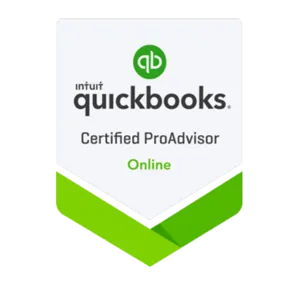OUR BLOG
Your hub for insightful and actionable content to help you unlock the potential of your business.

Top 10 Bookkeeping Mistakes Businesses Make (And How to Avoid Them)
Effective bookkeeping is the backbone of every successful business, regardless of size or industry. Accurate financial records provide crucial insights into a company's financial health, aid in making informed decisions, and ensure compliance with tax regulations.
However, many businesses, particularly small and medium-sized enterprises (SMEs), fall into common bookkeeping pitfalls that can lead to financial difficulties and missed opportunities. In this blog, we will explore the top 10 bookkeeping mistakes businesses make and provide practical tips on how to avoid them.
Neglecting Regular Bookkeeping Tasks
One of the most significant mistakes businesses make is neglecting their bookkeeping duties until tax season or facing financial challenges. Irregular bookkeeping can lead to disorganized records, inaccurate financial reporting, and difficulty tracking expenses and revenues.
To avoid this, businesses should establish a consistent bookkeeping schedule and allocate time each week or month for data entry, bank reconciliations, and financial reviews. Utilizing bookkeeping software can streamline these tasks and simplify the process. Running out of time to complete your bookkeeping on the planned schedule could strongly indicate that you should consider outsourcing your bookkeeping tasks.
Mixing Personal and Business Finances
Blurring the lines between personal and business finances is a common bookkeeping error, especially among startups and sole proprietors. Combining personal and business expenses can create confusion, complicate tax filings, and raise red flags during audits.
To prevent this mistake, businesses should open separate bank accounts and credit cards dedicated solely to business transactions. This segregation ensures accurate record-keeping and simplifies financial tracking.
Failure to Reconcile Bank Accounts
Failing to reconcile bank accounts regularly is a recipe for financial disaster. Reconciliation involves comparing financial records with bank statements to identify discrepancies and errors. Neglecting this crucial step can lead to missed payments, overdrafts, and undetected fraudulent activities.
To avoid this mistake, businesses should reconcile their bank accounts monthly, comparing transaction records against bank statements and resolving any discrepancies promptly.
Ignoring Accounts Receivable and Payable
Poor accounts receivable and payable management can severely impact a company's cash flow. Delayed invoicing or ineffective follow-ups on outstanding payments can lead to cash shortages and hinder business operations. Similarly, overlooking accounts payable can result in missed payment deadlines and damage vendor relationships.
Implementing a systematic invoicing and payment collection process and setting clear customer payment terms can help avoid these issues.
Not Keeping Track of Receipts and Expenses
Failing to retain and categorize receipts properly is a common bookkeeping mistake that can result in missed deductions and inaccurate expense reporting. Without proper documentation, businesses may lose out on valuable tax deductions and may face challenges during audits.
Adopting digital expense tracking tools or maintaining an organized physical filing system can help businesses stay on top of their expenses and maximize tax benefits.
Inadequate Record Keeping for Tax Deductions
Businesses often miss significant tax deductions because they are unaware of the eligible expenses or do not keep proper records.
Keeping detailed records of business-related expenses, such as travel costs, office supplies, and business meals, can ensure that businesses claim all available deductions and reduce their tax liabilities legally.
Lack of Backup and Data Security
Data loss due to hardware failure or security breaches can be catastrophic for a business. Failing to back up financial data regularly and implement robust security measures can expose sensitive financial information to potential threats.
To avoid this risk, businesses should invest in secure cloud-based bookkeeping software and create regular backups to protect their financial records.
Misclassifying Employees and Contractors
Misclassifying workers as employees or contractors can lead to significant tax implications and legal issues. The classification determines tax responsibilities, benefits, and compliance with labour laws.
Businesses should accurately classify their workers based on established criteria; we are here to help if you are unsure. Properly categorizing workers helps avoid costly penalties and ensures adherence to labour regulations.
Overlooking Sales Tax Obligations
Businesses that sell taxable goods or services may have to collect and remit sales tax to the appropriate authorities. Overlooking this obligation or miscalculating sales tax can result in fines and interest charges. It is essential to understand the sales tax regulations in the relevant jurisdictions and implement systems to accurately collect and report sales tax.
Not Seeking Professional Bookkeeping Help
One of the biggest mistakes a business can make is handling complex bookkeeping tasks without professional assistance. While managing some aspects of bookkeeping in-house may be feasible for small businesses, seeking expert help can provide numerous benefits. Professional bookkeepers like ours here at Competitive Edge can offer valuable insights, ensure compliance, and optimize financial processes, ultimately saving time and money in the long run.
Summary
In conclusion, the importance of effective bookkeeping cannot be overstated. It truly is the backbone of every successful business, regardless of its size or industry. In this blog, we've discussed the top 10 bookkeeping mistakes that businesses often make, along with practical tips on how to avoid them.
But here's the bottom line: why should you, as a business owner, invest your valuable time and effort into handling bookkeeping in-house when you can have experts like us at Competitive Edge Business Solutions take care of it for you?
By outsourcing your admin and bookkeeping needs to us, you can sidestep these pitfalls entirely. You'll free up precious time and resources to focus on what truly matters—growing your business and maximizing your profits. Our experienced team is well-equipped to handle all your financial tasks, ensuring accuracy, compliance, and financial health.
So, why go through the headache of managing complex financial processes on your own? Let us be your partner in success. Contact us today to explore how Competitive Edge can elevate your business to new heights by providing top-notch bookkeeping, tax, and business solutions. Don't let these common bookkeeping mistakes hinder your growth; let's build a stronger financial foundation together.






